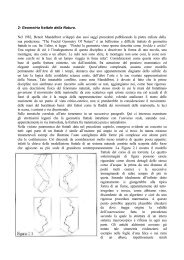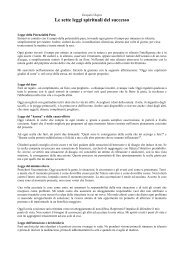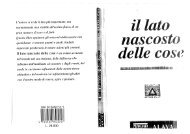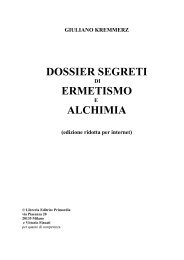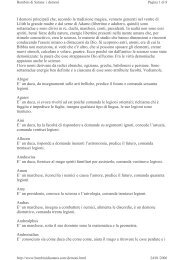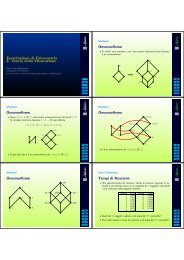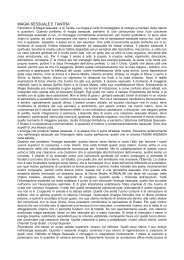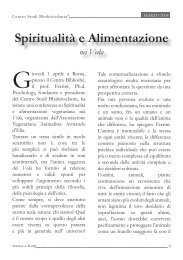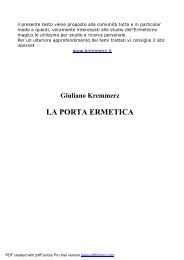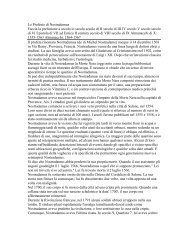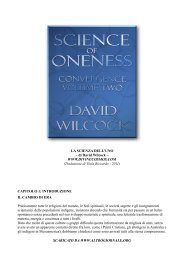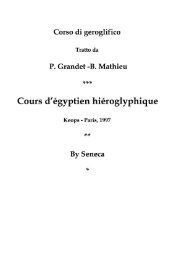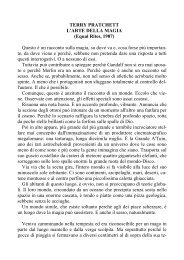148 ~ TALIBANwhen they were finally crushed by the Bolsheviks. In another replay inthe 1980s, the USA encouraged the Afghan Mujaheddin to cross intoCentral Asia and attack Soviet army posts. And in reply Soviet troops inAfghanistan frequently called the Mujaheddin 'Basmachis'.Tajikistan remained an underdeveloped, poverty-stricken Republic onthe Soviet Union's periphery. Its budget depended on subsidies fromMoscow. After 1991, tensions between Uzbeks and Tajiks and intra-clanrivalries within the Tajiks erupted. The resulting civil war (1992-97)between the neo-communist government and an array of Islamicist forcesdevastated the country. Once again thousands of Tajik rebels and refugeesfound refuge in northern Afghanistan, while Tajik government forceswere backed by Russian troops. President Boris Yeltsin declared in 1993that the Tajik-Afghan border was 'in effect Russia's border' and the25,000 Russian troops stationed there would be defending Russia. 6 It wasa reassertion of Moscow's role in Central Asia.Ultimately the neo-communist government and the Islamicist oppositionin Tajikistan agreed to a UN-brokered peace settlement, but neitherside had been able to promote a national identity for the fragmented Tajikclans. These internal cleavages and the fact that it 'lacked an indigenousintelligentsia to elaborate a nationalism linking the people to the landand each other', left the country vulnerable to influences from Afghanistan.7 Both sides in the civil war eventually co-operated with Masud, whoto many Tajiks became a symbol of Tajik nationalism as he battled theTaliban. The Taliban added to Masud's image by accusing him of tryingto divide Afghanistan and create a 'Greater Tajikistan' by joiningAfghanistan's Badakhshan province with Tajikistan. Masud denies suchaims. For Tajikistan the Taliban represented an Islamic fundamentalismat odds with the moderate, Sufi spiritualism of Central Asia while Pashtunexpansionism was at direct odds with Tajik aspirations.In Uzbekistan Islamic militancy, partly fuelled by Afghanistan, is themost serious challenge to President Islam Karimov. The Uzbeks — themost numerous, aggressive and influential race in the region — occupytoday's Islamic heartland and the political nerve centre of Central Asia.Uzbekistan has borders with all the CARs and Afghanistan. Its principalcities of Samarkand and Bukhara have played host to countless civilizationsover 2,500 years and became the second centre for Islamic learningafter Arabia. Medieval Bukhara contained 360 mosques and 113 madrassasand even in 1900 there were 10,000 students studying at 100 activemadrassas. The 250-mile long Ferghana valley, with its long associationswith Islamic learning and militancy such as the Basmachis, is the richestagricultural region in Central Asia and the centre of Islamic oppositionto Karimov.The Uzbeks trace their genealogy to Genghis Khan's Mongols,DICTATORS AND OIL BARONS ~ 149branch of which, the Shaybani clan, conquered modern-day Uzbekistanand northern Afghanistan in 1500. Mahmud Ibn Wali, a sixteenthcenturyhistorian, described the early Uzbeks as 'famed for their badnature, swiftness, audacity and boldness' and revelling in their outlawimage. 8 Little has changed in the Uzbek desire for power and influencesince then. Uzbekistan is the largest CAR with a population of 22 million.And with some six million Uzbeks living in the other CARs - formingsubstantial minorities in three of them (Tajikistan, Turkmenistan andKazakhstan) - Karimov has ethnic allies to pursue his agenda of dominatingthe region. Some two million Uzbeks live in northern Afghanistan,the result of migrations before and during the Basmachi rebellion.Another 25,000 Uzbeks live in China's Xinjiang province.Well before Soviet troops withdrew from Afghanistan, Moscow andTashkent were cultivating Afghan Uzbeks to create a secular Uzbekcontrolled'cordon sanitaire' in northern Afghanistan that would resistany Mujaheddin takeover. For nearly a decade that policy was successful.General Rashid Dostum controlled six provinces and with military aidfrom Moscow and Tashkent, held off the Mujaheddin and later the Taliban.Karimov meanwhile led the attempt to forge an anti-Taliban allianceamongst the CARs and Russia after 1994- However, with the fall of Mazarin 1998, Karimov's policy collapsed and the Taliban were now Uzbekistan'simmediate neighbours. Since then Uzbekistan's influence inAfghanistan has waned considerably as Karimov was unwilling to backMasud, a Tajik.Karimov has also tried unsuccessfully at throwing his weight around inTajikistan, where 24 per cent of the population is Uzbek. In 1992 Karimovgave military support to the Tajik government in its crackdown onIslamic rebels. By 1996 when peace talks were under way between theantagonists, Karimov attempted to force both sides to give a greater roleto the Uzbek minority by supporting local Uzbek uprisings in northernTajikistan. Karimov remains opposed to the Tajik attempt to make acoalition administration between the government and the rebels, becauseit would show the Islamicists in a good light - a lesson that would percolatedown to Uzbekistan's own frustrated population.Karimov runs a tightly controlled, authoritarian police state and citesthe civil wars in Afghanistan and Tajikistan as justification for repressionat home. The most significant opposition to Karimov has come fromunderground radical Islamic groups, some of them Wahabbis, entrenchedin the Ferghana valley. Many of these Uzbek militants studied secretly inSaudi Arabia and Pakistan or trained in Afghan Mujaheddin camps inthe 1980s. Subsequently they developed links with the Taliban.Karimov has passed the most stringent laws of all the CARs againstIslamic fundamentalism, from restricting madrassa education to the
150 — TALIBANgrowth of beards and has blamed all unrest on the Wahabbis, a blanketterm which Uzbek authorities increasingly use to describe all Islamic activism.But with half of Uzbekistan's population under 18 years of age andwidespread unemployment and inflation, unrest amongst Uzbek youth isgrowing. The social and economic dissatisfaction amongst young peopleis unrecognized by the regime. Even though Uzbekistan may be the mostpowerful state in Central Asia, it faces the most intense political andreligious polarization. Karimov's failed forays into Afghanistan and Tajikistanhave only encouraged Islamic militancy.Nevertheless, Uzbekistan is a major player in the new Great Game. Itproduces sufficient oil and gas for domestic consumption and will soon bean exporter. Initially Uzbekistan was ignored by the oil companies whoscrambled to sign contracts with Tashkent's neighbours. Karimov wasboth jealous and envious of their success in attracting foreign investment,even as he refused to loosen state controls on the economy to attractWestern investors. As Tashkent becomes an energy exporter it will havea vested interest in trying to influence routes for pipelines that benefitUzbekistan, but it will also act as a spoiler in its determination not to seeits neighbours prosper and thus become more influential in the region.Afghanistan's 500,000 Turkmen population also arrived as a result ofthe 1920s civil war in the Soviet Union. The first migration intoAfghanistan was by the Esari tribe in the early nineteenth century, whowere followed by the Tekke tribe after their revolt against the Bolsheviksfailed. Turkmenistan is a desolate land of desert and mountains inhabitedby the nomadic Turkmen tribes, who fiercely resisted but eventually succumbedto Persian, Turkic and finally Russian conquerers. Before thenineteenth century, borders were meaningless for the Turkmen whomigrated freely across the region. Some 300,000 Turkmen still live inIran, 170,000 in Iraq, 80,000 in Syria and several thousand in Turkey.The Tekke, the largest Turkmen tribe, began to resist Russian advancesinto their territory in 1870 and wiped out a Russian army at the oasis fortof Geok Tepe in 1881. Six thousand Turkmen horsemen were killed ayear later by a Russian retaliatory force. In 1916 the Turkmen under thecharismatic leadership of Mohammed Qurban Junaid Khan began anotherlong and bloody resistance against first tsarist Russian and then the Bolshevikswhich continued until his defeat in 1927, when he took refuge inAfghanistan.Throughout the Soviet era Turkmenistan was ignored by Moscow. TheRepublic had the highest unemployment rate, the highest infant mortalityrate and lowest industrialization of any Soviet Republic apart from Tajikistan.9 As Moscow invested in the oil and gas industry in Siberia, Turkmenistan'spotential oil reserves were ignored. Nevertheless 47 per centof Turkmenistan's revenue in 1989 came from the sale of 3.2 tcf of naturalDICTATORS AND OIL BARONS ~ 151gas to other Soviet Republics. The breakup of the Soviet Union turnedTurkmenistan's customers into impoverished, independent states whocould not pay their bills. 'We have no idea now who will buy our gas andhow they will pay for it,' Foreign Minister Avde Kuliyev told me inDecember 1991. l0Turkmenistan's dilemma was that it was sandwiched between Iranwhich was unacceptable to the USA as a pipeline route; Afghanistanwhich was trapped in civil war; and Russia which wanted to limit Turkmenistan'sgas exports to the West because they competed with Russia'sown exports of Siberian gas. By 1992 Ukraine, Armenia and then evenRussia refused to pay their bills for Turkmen gas imports. Moscow had astranglehold as all Turkmen gas was pumped through the vast formerSoviet pipeline network that was now owned by Russia. President Niyazovshut down gas supplies to his neighbours after Turkmenistan accumulatedover US$1 billion in unpaid bills and Turkmen gas production slipped to0.73 tcf in 1994, less than a quarter of what it was five years earlier.Although the USA was determined to isolate Iran, Turkmenistan couldnot afford to do so, as Iran offered the nearest and most accessible outletto the south and the sea. Adroitly Niyazov wooed the USA while seekingTehran's help in developing road and rail links. In December 1997 theIranians completed construction of a 119-mile-long gas pipeline betweenthe Korpedzhe gas field in Western Turkmenistan to Kord-Kuy in northeasternIran. The Turkmen gas that flows through it is consumed in northernIran. 11 This pipeline is still the only new pipeline built between CentralAsia and the outside world after nearly a decade of trying.Niyazov also courted Western oil companies to build gas pipelines thatwould free him from the Russian pipeline network. In April 1992 Turkmenistan,Turkey and Iran agreed to build a gas pipeline to Turkey andon to Europe which would cost US$2.5 billion. That pipeline never gotbuilt and subsequently saw several variations as the US tried to block anyroute through Iran. Finally, in February 1999, Turkmenistan signedanother agreement, this time with a US consortium, to build a Turkmenistan—Turkeygas pipeline which would go under the Caspian Sea to Azerbaijanand avoid Iran. 12As Niyazov saw his economy crumble he sought alternative exportroutes. On the drawing boards in 1994 were plans for a 5,000-mile-longoil and gas pipeline eastwards to China that would cost over US$20 billion,but the project is still only in the feasibility stage. 13 Also in 1994Bridas, the Argentinian oil company which had concessions in Turkmenistan,proposed building a gas pipeline that would cross Afghanistan anddeliver gas to Pakistan and India. The US company Unocal with supportfrom Washington proposed a similar pipeline in 1995. The battle betweenthe two companies to build this pipeline, which is explored in the next
- Page 1 and 2:
YALE NOTA BENE"The broader storyher
- Page 3 and 4:
TalibanMilitant Islam,Oil and Funda
- Page 5 and 6:
Vi ~ CONTENTSChapter 8A Vanished Ge
- Page 7 and 8:
AFGHANISTAN•^ UZBEKISTAN J TAJIKI
- Page 9 and 10:
2 ~ TALIBANaccounts for some 40 per
- Page 11 and 12:
"6 ~ TALIBANgas riches of landlocke
- Page 13 and 14:
10 ~ TALIBANgious mix that was to m
- Page 15 and 16:
Part 1History of theTaliban Movemen
- Page 17 and 18:
18 ~ ISLAM OIL AND THE NEW GREAT GA
- Page 19 and 20:
22 ~ ISLAM OIL AND THE NEW GREAT GA
- Page 21 and 22:
26 ~ ISLAM OIL AND THE NEW GREAT GA
- Page 23 and 24:
30 ~ ISLAM OIL AND THE NEW GREAT GA
- Page 25 and 26:
34 TALIBANKabul- Hikmetyar had alli
- Page 27 and 28:
38 ~ TALIBANrHERAT 1995: GOD'S INVI
- Page 29 and 30:
42 ~ TALIBANdo manage to take Kabul
- Page 31 and 32: J46 ~ TALIBANgreater weight to UN e
- Page 33 and 34: 50 ~ TALIBANas they hung from steel
- Page 35 and 36: 54 ~ TALIBANthey would help rearm t
- Page 37 and 38: 58 TALIBANGul Mohammed Pahlawan, Gh
- Page 39 and 40: 62 TALIBAN2,500 Taliban, who had re
- Page 41 and 42: 66 TALIBANshould throw all aid agen
- Page 43 and 44: 70 ~ TALIBANyears of battle and hel
- Page 45 and 46: 74 ~ TALIBANThousands of Hazaras we
- Page 47 and 48: 78 TALIBANhas become a plague,' sai
- Page 49 and 50: NEW STYLE FUNDAMENTALISM OF THE TAL
- Page 51 and 52: 86 TALIBANsity students - Hikmetyar
- Page 53 and 54: 90 TALIBANSharia was heavily influe
- Page 55 and 56: 94 TALIBANinflamed the debate in th
- Page 57 and 58: 98 TALIBANizing factor of Islam, it
- Page 59 and 60: 102 TALIBANadministrations made the
- Page 61 and 62: 106 ~ TAUBANfrom working, but it no
- Page 63 and 64: TALIBANUniversity, she held down a
- Page 65 and 66: 114 TALIBAN A VANISHED GENDER 115Ta
- Page 67 and 68: 118 TALIBANUS$1,300 - a small fortu
- Page 69 and 70: 122 TALIBANper cent of the total Pa
- Page 71 and 72: 126 TALIBANequipment, no electricit
- Page 73 and 74: 130 ~ TALIBANfight with the Mujahed
- Page 75 and 76: 134TALIBANAugust 1996 noted that Bi
- Page 77 and 78: 138 ~ TALIBANwho were using the Kho
- Page 79 and 80: 11DICTATORS AND OILBARONS: THE TALI
- Page 81: 146 TALIBAN DICTATORS AND OIL BARON
- Page 85 and 86: 154TALIBAN1998 when international o
- Page 87 and 88: 158 ~ TALIBANaround Afghanistan? Af
- Page 89 and 90: 162 TALIBAN ROMANCING THE TALIBAN 1
- Page 91 and 92: 166 TALIBAN ROMANCING THE TALIBAN 1
- Page 93 and 94: ROMANCING THE TALIBAN 2: 1997-99 17
- Page 95 and 96: 174 — TALIBANnon-Russian pipeline
- Page 97 and 98: 178 — TALIBANROMANCING THE TALIBA
- Page 99 and 100: 182 ~ TALIBANApril 1999. 'The US ha
- Page 101 and 102: 186 ~ TALIBANters or the transport
- Page 103 and 104: 190 ~ TALIBANThis Wild West of free
- Page 105 and 106: 194 ~ TALIBANgovernance. Pakistani
- Page 107 and 108: 198 TALIBAN SHIA VERSUS SUNNI: IRAN
- Page 109 and 110: 202 TALIBAN SHIA VERSUS SUNNI: IRAN
- Page 111 and 112: 206 — TALIBANin Afghanistan - to
- Page 113 and 114: 210 — TALIBANand antagonism. The
- Page 115 and 116: 214 ~ TALIBANdrawn since 1996 - a P
- Page 117 and 118: 218 ~ TALIBANated and severely puni
- Page 119 and 120: Origins of Members of the Taliban M
- Page 121 and 122: APPENDIX 3 ~ 227Appendix 3A CHRONOL
- Page 123 and 124: 230 ~ TALIBANgraves near Shebarghan
- Page 125 and 126: 234 ~ TALIBAN8 June. US FBI places
- Page 127 and 128: 238 ~ TALIBAN1995 January16 MarchAp
- Page 129 and 130: 242 ~ TALIBANJune21 August10 Septem
- Page 131 and 132: 246 ~ TALIBANDupree, Nancy Hatch, A
- Page 133 and 134:
250 ~ NOTESChapter 31 Interview wit
- Page 135 and 136:
254 ~ NOTESmuddin, Religious Police
- Page 137 and 138:
258 NOTES13. The Japanese company M
- Page 139 and 140:
262 ~ NOTES28. Waxman, Sharon, 'A c
- Page 141 and 142:
Abbas, Mulla Mohammed 22,61,100Abda
- Page 143 and 144:
INDEX - 270Hazaras (continued)burea
- Page 145 and 146:
INDEX ~ 274nF»r\/FaliViar» milita
- Page 147:
INDEX ~ 278Talibans (continued)Sunn




